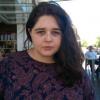A Literary Cities piece on Fremantle by Chloe Papas.
I don’t come from Fremantle, but it is one of my homes. A scrabbly port town where the Indian Ocean swallows up the Swan River, Freo is a mysterious mish-mash of people and culture and historical traditions that centre around the sea. It’s known around the country and the world but you can’t really know it until you stand in its heart and let it permeate your skin. Fremantle is where I learnt to tell stories.
For the first decade of my life, my grandfather took me fishing in Fremantle every Saturday morning. We would clamber into his four-wheel drive, pick up some bait from the local shop - maybe squid, maybe prawns - and drive down to an inlet just south of the city. The inlet is called Woodman Point, but we called it Treasure Island. He’d roar along to a ‘60s megamix CD as we drove, and tell me where pirates had buried gold under the sand.
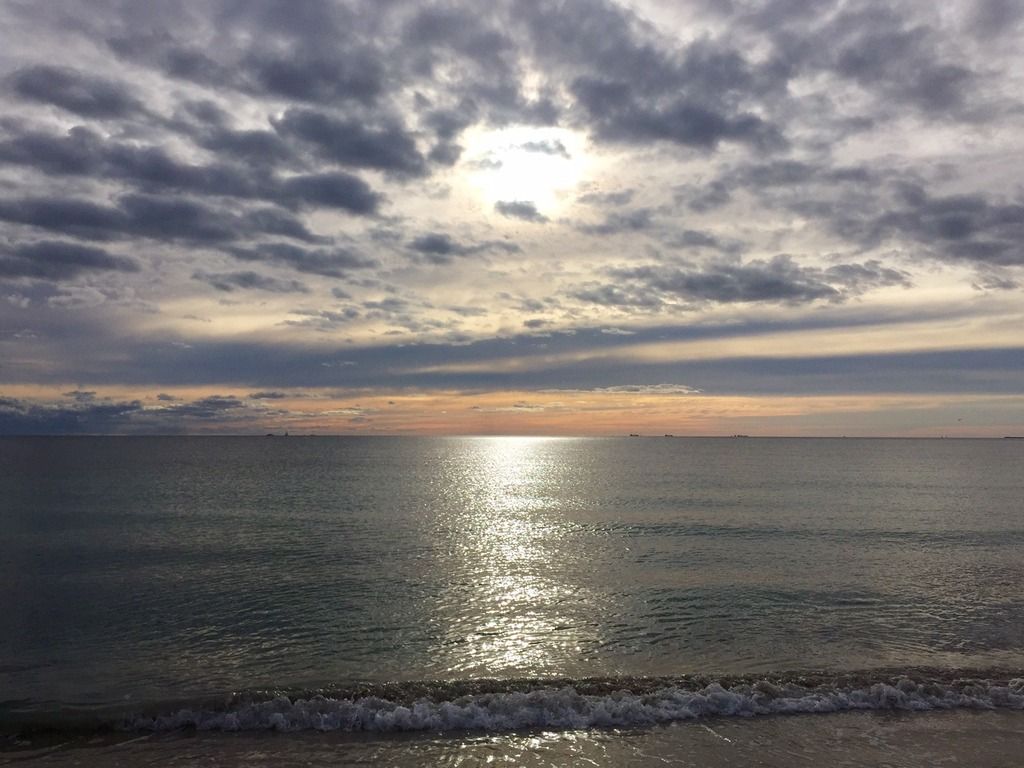
When we got to the beach we would walk along the bit where the tide had slithered up the sand the night before, where periwinkles and cockles and dead, rotting fish had washed up. Some of the fish had been chomped on by sharks in the dark. Little ghost crabs scuttled about, darting between our legs. We found mussel shells and discarded crab skeletons and shark teeth and a dead, bloody dolphin. He would tell me stories about all of them: some real, some exaggerated, all big.
His stories were never tempered for small ears: he had no interest in keeping things pleasant. His stories fantastical and magnificent. I’d stare up at him: fishing shorts, cap slapped down on his head, Velcro sandals, freckled legs – fascinated, as he told me the dolphin was probably mauled to death by a pack of vicious sharks, that crabs loved to eat human toes, and to be careful on the rocks because if I fell there would definitely be blood everywhere.
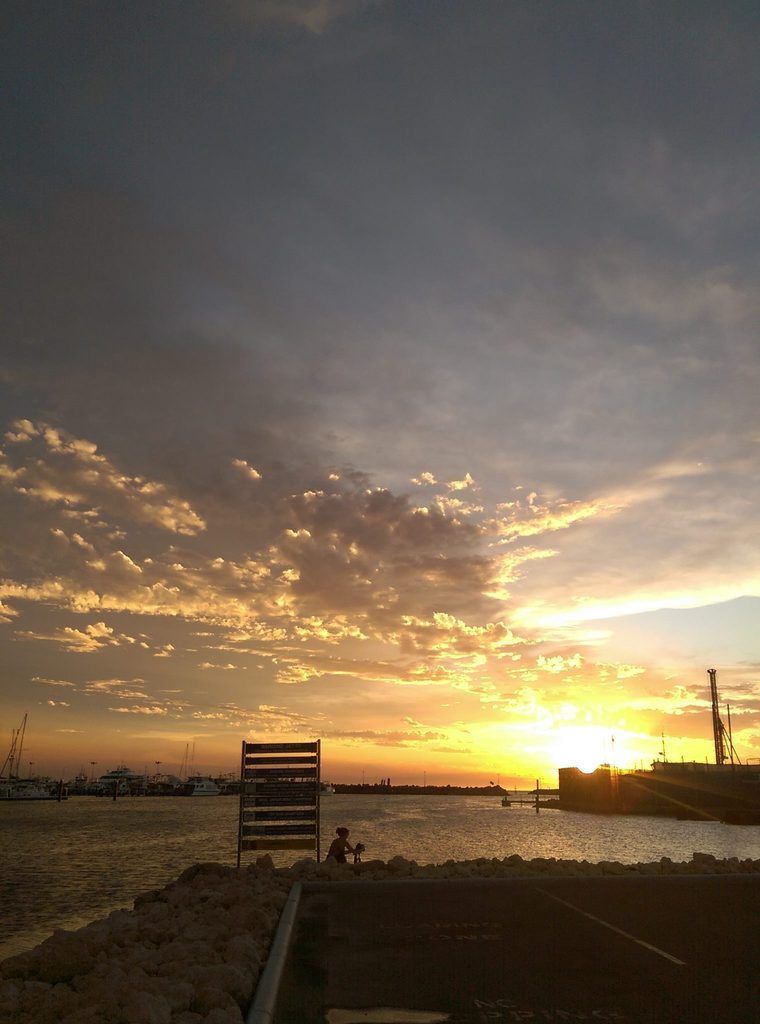
The jetty that we fished from was made out of rocks, and as we walked along it grandad would call out to fellow punters as they stood over big white buckets, their posture lazy, hands barely gripping their fishing rods.
“Anything good today?”
“Mostly blowies, mate!”
“Ah, bugger,” he’d call back, then turn to me: “Don’t worry love, we’re going to catch some today. Just gotta find the perfect rock. Nah, not here. This one. We’ll set up here and the fish will be biting, I bet.”
He’d set down the tackle box, hand me a fishing rod and - once I was old enough - I’d put the bait on. He taught me how to layer it onto the hook so that the fish thought it was prey: “Don’t just go round once, keep looping it over so it’s nice and tight, otherwise the fish will never believe you.” Sometimes we caught good fish, sometimes we caught blowies.
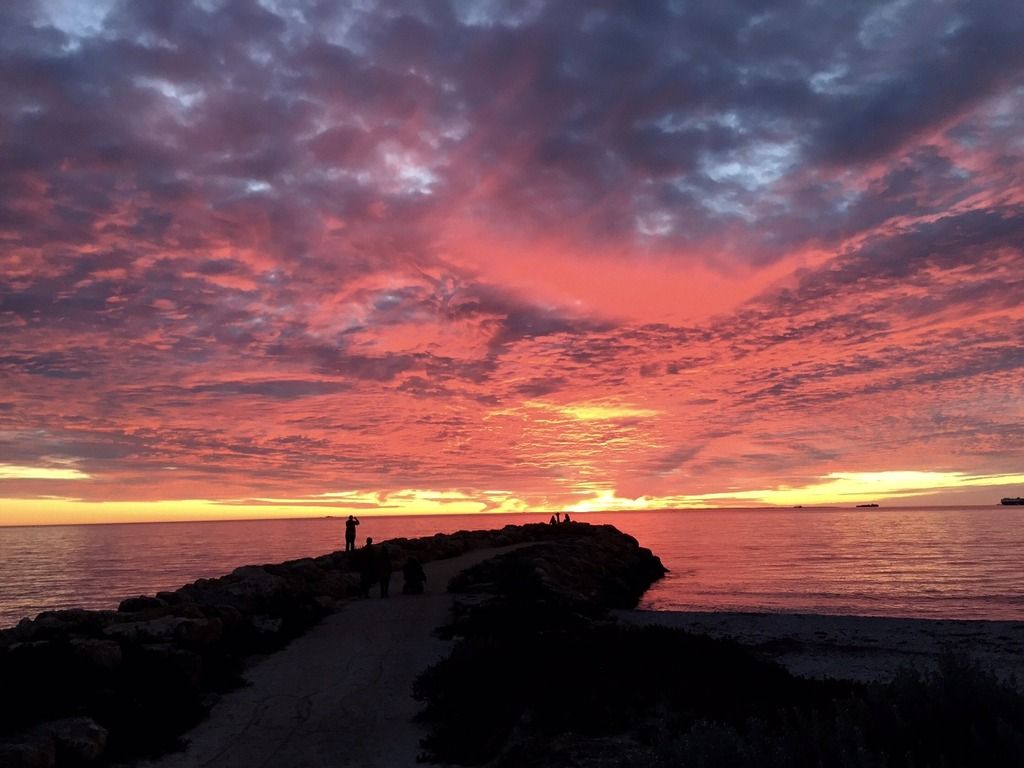
After we went fishing we would go and eat fish and chips in the west end of the city at Fishing Boat Harbour. I would get the kids meal and he’d get the adult meal and we would sit outside the restaurant on cold aluminium benches, shooing away the seagulls. He would tell me about the big container ships in the harbour, the grumbling stinking livestock ships, the cruise boats carrying people to ports across Indonesia and Malaysia.
Some days we’d walk through the carpark, over the railway tracks and into the old Maritime Museum, where the stories were written on plaques but grandad knew them all anyway. There were bits of wooden shipwrecks and old submarines and stories of battles in the water we had just had our toes in. There was a big glass case with the skeleton of a man in it who had succumbed to the gruesome Batavia shipwreck and we would stare down at it and I would wonder what he looked like.
The railway tracks are still there today but the museum has been renovated and is dwarfed by a big Ferris wheel that no one uses. There’s four fish and chips joints down at the harbour now, including the place we used to go when I was a kid - it doesn’t taste the same, though. Grandad still makes us go there on his birthday because the memories are in the aluminium benches.
Fremantle is a lot of things to me now. Not just fishing and adventures and boats and the sea. It’s the whipping Freo Doctor in the early arvo, drinking beers in an old crocodile farm, watching ice cream drip down my fingers, trawling ancient secondhand book shops. It’s fighting for a park on the weekends and sticking my nose up at tourists, it’s buskers on the hot pavement and diving into the Indian Ocean with a yell. It’s dickheads revving Monaros on the main drag, blood stains on the pavement outside the pub, cops lining the median strip. It’s the man dressed in orange who pushes a trolley full of mattresses through the streets.
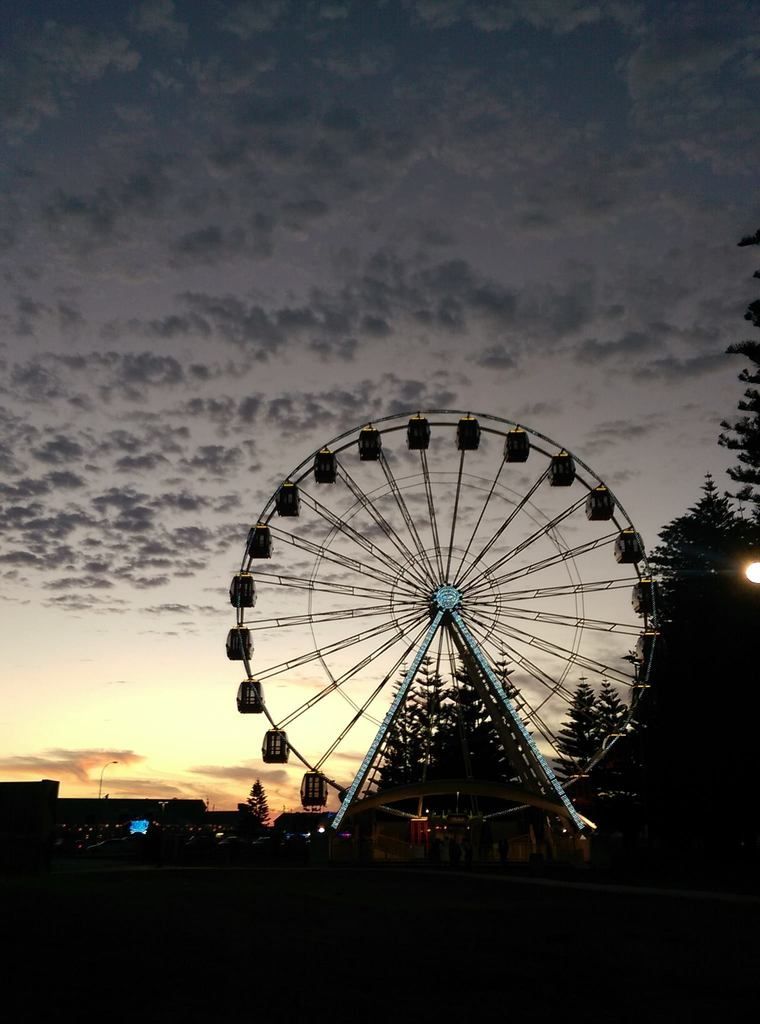
My Freo is born of privilege and love and make-pretend. The literary king of Fremantle Tim Winton writes of the city’s darker side in his novel, Eyrie. In an interview when the book came out, he said of Freo: “You’re projecting a bohemian, picture-postcard life… as though all the other stuff that you’re walking past every day doesn’t exist.” Freo is full of contradictions, of well-off locals stepping blindly over those who live in the city’s underbelly, of the very rich and the very poor existing in different worlds within the same town. The city is beautiful and brutal.
Grandad still tells me stories, but they’re based in reality: tales of being a jackaroo, travelling the world, meeting my Nan.
I have stories my own now, built from my own experience. But their bones come from my grandfather and Fremantle and the sea.
This is a Literary Cities piece, part of a series where writers reflect on the places and experiences that have inspired them. To read more like this, click here.
Chloe Papas
Chloe Papas is a writer and journalist living in Victoria via Perth. You can find her on twitter @chloepapas

